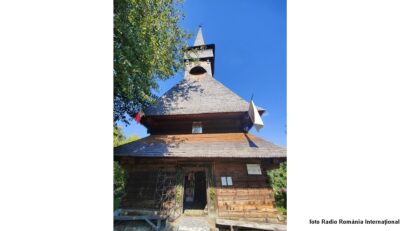Work After Retirement in Europe and Romania
A recent study published by Eurostat showed that only 13% of European Union citizens continue to work after retirement

Iulia Hau, 15.01.2025, 13:01
A recent study published by Eurostat showed that only 13% of European Union citizens continue to work after retirement. For 36% of them, the desire to remain productive and the fact that they enjoy what they do is the main motivation, while over 28% are driven by financial needs. Other reasons mentioned by the respondents to the study are the desire to remain socially integrated (11%) and the financial attractiveness of work (9%).
The same study shows that the Baltic states have the highest proportions of seniors who continue to work after retirement: almost 55% (Estonia), 44% (Latvia) and almost 44% (Lithuania). At the opposite end are Greece and Spain (4.2% and 4.9% respectively), and in last place, with only 1.7% of retirees remaining active on the labor market, Romania.
However, a survey conducted by BestJobs agency contradicts the statistics. In 2021, eight out of ten Romanian employees said they were considering working after retirement. To better understand the reality in Romania, we spoke to Sorina Faier, a human resources specialist with over 17 years of experience in the field.
“I think the truth is somewhere in the middle. I don’t think Eurostat is completely right either, because it doesn’t have all the data and the other study only says that they intend to work, but not that they are working. Because, indeed, many retirees don’t have a high enough pensions by far — we all know how low pensions we have in Romania — and then they work. But many employers hire illegally, and it’s clear that they don’t appear on the payroll, and then Eurostat wouldn’t have any way of taking them into account.”
When asked what are the reasons why Romanian retirees choose to stay in the workforce, Sorina Faier believes that financial needs prevail, but also that the desire not to isolate themselves is important.
“Being sociable, still dynamic, physically and mentally healthy people, they really want to continue their activity in order to maintain this tonic state of being.”
There are, however, significant differences between top and middle management employees and skilled and unskilled workers. In the case of the former, most want to stay in the same field. Because the mentality of employers has changed in the last ten years, says Sorina Faier, they are more open to retaining or hiring people past retirement age, aware of the benefits brought by the expertise of senior professionals in leadership positions.
“I notice from all the interviews we have, and from all the meetings I have with top management, that they are much more open to hiring older people, the advantage being their seniority and the knowledge they can bring as a benefit. But if we talk about skilled and unskilled workers, most of them certainly go to other fields, and the main fields would be security services, because we see guards everywhere who are quite old and clearly retired. Usually, when they retire, exactly as I said, (they) go into services, possibly cleaning services, security services, maybe catering and taxi services.”
There are also seniors who, after retirement, choose to take the path of entrepreneurship, most often in the field in which they have gained experience, with enough confidence that they can open a business from scratch.
“Of course, most of them run a fairly small business, just enough to provide them with comfort and supplement their pension, and, yes, they focus on the fields they know, and the field in which they have formed a strong enough network to make that business successful.”
Sorina Faier says that the mentality has changed compared to ten years ago, when people rarely considered working after retirement age. Today, Romanians understand that there are many benefits to staying active, both in terms of health and mental balance, but also from a financial perspective. Another option is freelancing in educational projects, in the field of translations, offering private lessons, or even in the IT field. The latter, although not occupying a very large percentage, tend to attract people who have constantly improved themselves and stayed up to date with the latest technologies.
Data from the National Institute of Statistics showed that 4.9 million Romanians are retired, of which one million have not yet reached the standard retirement age. The age of first retiremeent in Romania is one of the lowest among EU member states: 59.5 years, with only Austria having an age as low as 59.6 years. On the other hand, Iceland, Denmark, the Netherlands, and Sweden have the oldest age of first pension: between 64 and 66.2 years.
Romanian experts believe that, being about an average, there are very large differences between those who retire early from the workforce and those who continue their activity until old age. Among the professions that offer early retirement in Romania are the police, gendarmerie, secret services, military service, the judiciary, and aviation.






























